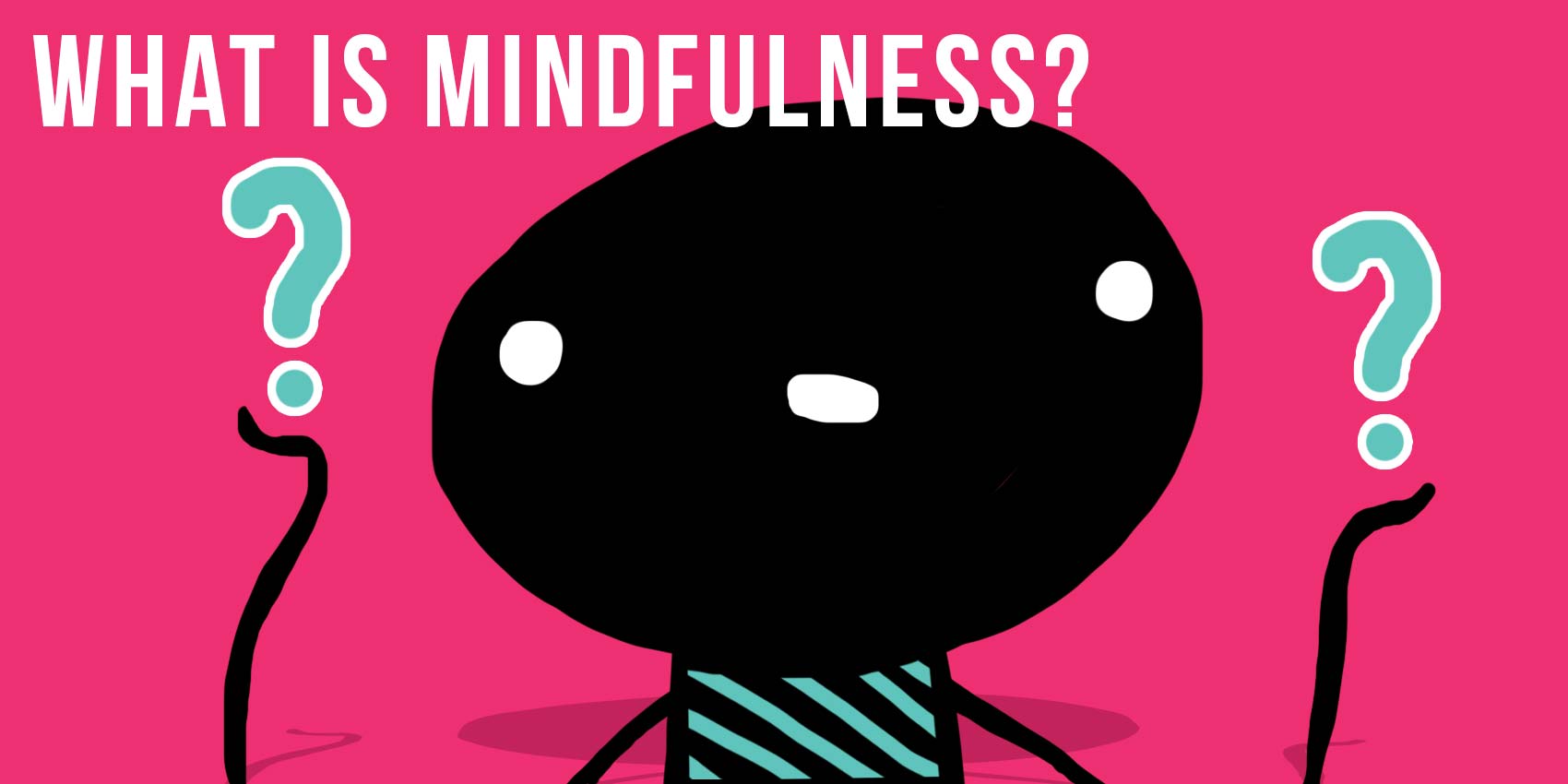03 Mar What is mindfulness?

Mindfulness is the ability to focus and be present to your thoughts and feelings (even the way your body feels) without any judgment and regardless of what you’re doing. You do this for a specific period of time of your choosing.
Yep. That’s it. That’s what all the fuss is about.
For example, a mindfulness exercise could be to focus on your breath for five minutes, concentrating on what it feels like as you inhale and exhale, shifting your attention to the sound, the feeling in your lungs, your chest expanding, etc.
Or another exercise might be to sit quietly and focus on the sounds around you – Was that the wind? The rustle of leaves? Cars going by? That’s quite a storm! What are the sounds and how do they make you feel?
Or another mindfulness exercise might be to slow down at dinner and focus intently on the taste of your food in your mouth while chewing slowly. How does it feel? Do you enjoy it? Is it salty? Sweet? How does it feel as you swallow?
Simply put, mindfulness is awareness. (Totally achievable stuff. You got this.)
So the first part of mindfulness is simply being focused and present in the moment as these examples show. The second part is to allow the experience to happen without judgement. As you do this, you train your mind to let go of other distracting thoughts that can often feel overwhelming.
But how do you do this without judgment? What does that mean? It means that whatever you are thinking or feeling is okay. For example, if you try to focus on your breathing and suddenly find yourself thinking about the test you have next period, that’s okay. Thinking, See! I can’t do this mindfulness stuff. I suck at it! I can’t even focus on one thing! is a judgement thought. Instead, a nonjudgmental stance would notice that you have lost focus on your breathing and then would just return to focusing on it. The thought might go something like, Oops. Wow! Now I am thinking about my test. I wanted to think about my breathing. I’m just going to think about that now instead. That’s it. No judgement. The loss of focus is simply noticed and you get back on track. No beating yourself up for it. No giving it extra meaning, like Wow. I must need to think about that. Just notice and move on. That’s non-judgement.
Recap: Mindfulness is being present in the moment without judgement.
And why is this helpful you might ask?
For starters, it quiets all the chatter – especially the negative chatter – that sometimes fills our mind. Keep reading to learn more!




WLKHS2420
Posted at 16:33h, 02 MarchI don’t practice mindfulness regularly because I find it hard to focus my mind and it’s never on the top of my mind. However, I practice certain aspects of it, like taking my mind off stress, often.
wlkhs2302
Posted at 15:12h, 02 Marchsometimes when i’m struggling with something, i try and practice mindfulness to calm down and work through the problem.
wlkhs2321
Posted at 15:02h, 02 MarchI feel like I practice mindfulness a little bit but sometimes there is too much stress and i just freak out.
WLKHS2319
Posted at 14:56h, 02 MarchSometimes I do practice mindfulness, it helps me calm down when I’m upset. Sometimes I will focus on how I am breathing and take deep breaths, which allows me to function better.